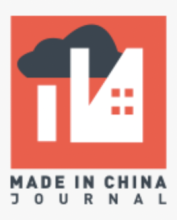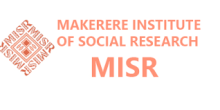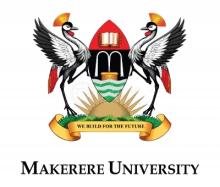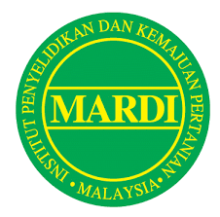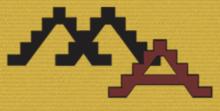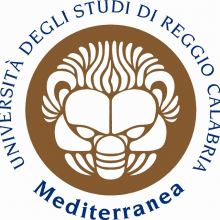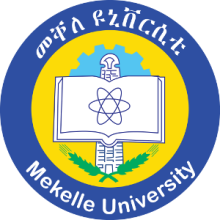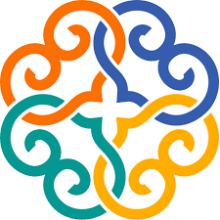La Biblioteca de la Tierra incluye recursos de más de 1.890 proveedores de información nacionales e internacionales. Aprenda más sobre las organizaciones e instituciones que utilizan el Land Portal para compartir sus investigaciones, datos e historias con acceso abierto.
Lynne Rienner Publishers
Founded in 1984, Lynne Rienner Publishers remains a rare, independent presence in scholarly and textbook publishing.
"Independent" means a lot of different things to us: Taking chances on new ideas. Being free of the restrictions of corporate headquarters or lenders. Publishing each book with care, from the external review process ... to professional copyediting, typesetting, and proofreading, all done locally ... to quality manufacturing ... to thorough promotion and worldwide distribution. We are also determined to keep our prices as low as possible.
Where we are not independent is in our relationship with the community of people whom we publish, and publish for. One of the aspects of publishing that all of us here love most is being part of that international, interdependent community.
We publish in the fields of international studies and comparative politics (all world regions), US politics, military history, and sociology and criminology (with a US focus). We also have a small list of literature in translation, including books by such notable authors as Naguib Mahfouz, Ghassan Kanafani, Derek Walcott, and Tawfiq al-Hakim. Our distribution clients include Holmes & Meier Publishers and Kyungnam University Press.
In addition to the Lynne Rienner Publishers imprint, our publishing program includes FirstForumPress and Kumarian Press. FirstForumPress was established in 2008 to provide a forum for important work that may otherwise be overlooked because of today's market constraints. FFP publishes specialized scholarly research of the highest quality (all projects are peer reviewed) in a timely and cost-effective fashion.
Since its founding in 1977, Kumarian Press (a 2013 acquisition) has earned a reputation for publishing books that tackle such challenging global issues as poverty and underdevelopment, war, and human rights abuses. Kumarian is also at the forefront in the field of nonprofit-sector management.
L’agence d’urbanisme Rhône Avignon Vaucluse (AURAV)
L’agence d’urbanisme Rhône Avignon Vaucluse (AURAV) est une association Loi 1901 créée le 4 octobre 2004. Elle fait partie de la Fédération Nationale des Agences d’Urbanisme (FNAU).
L’AURAV a pour objet la définition de projets de territoires ou d’aménagement à différentes échelles, du quartier à l’aire urbaine d’Avignon en passant par l’échelle communale et le Département de Vaucluse. Elle intervient dans les territoires urbains, périurbains et ruraux.
Elle a vocation à observer et analyser les évolutions socio-économiques de ces territoires pour apporter des éclairages prospectifs aux décideurs et contribuer au suivi et à l’évaluation des politiques publiques mises en œuvre.
L’AURAV est un outil d’aide à la décision. Son expertise couvre tous les domaines de l’urbanisme et de la planification : l’urbanisme réglementaire, le développement économique, l’habitat, les évolutions sociales, les modes de vie, les transports et déplacements, le paysage, l’environnement, la culture, le tourisme, les loisirs…
Dans un souci d’harmonisation des politiques urbaines et de mise en cohérence des projets, elle constitue pour ses membres un lieu de réflexion et de débat sur l’aménagement du territoire et les partenariats qui en découlent.
L’AURAV est constituée d’une équipe pluridisciplinaire (urbanistes, géographes, paysagistes, géomaticiens...). La pluralité des métiers présents constitue une des richesses de l'Agence et favorise une approche transversale des questions urbaines et territoriales.
L’Institut de Recherches et d’Applications des Méthodes de développement
L’association Iram est née en 1957, en pleine accession à l’indépendance des pays africains et dans le contexte de l’émergence des pays en développement sur la scène internationale. À travers elle, ses fondateurs (dont Henri Grouès dit l'Abbé Pierre, Yves Goussault et Henryane de Chaponay) s’attachaient à promouvoir les ruraux dans la construction de ces nouveaux États. C’est l’idée d’un « engagement dans la société » qui a ainsi fondé les premières années de l’Iram, et cet engagement est désormais formalisé par une charte. Depuis, l’association s’est structurée en bureau d'études associatif.
Maastricht University - Summary of Land Laws - Project Team
A team of bachelors students from the 2016-2019 class of the European Law School Programme working with data collected by students from the 2017-2020 class of the European Law School Programme with the aim of creating a summary of the land laws for multiple countries.
The team consists of: Bert Brookfield-Hird, Alexandra Aldous, Lisa Beatrice Ferrari, Doris Beganović, Magda Jacyna and Ines Garreau.
Made in China
The Made in China Journal is an open access quarterly on Chinese labour, civil society, and rights. In recent years, the Chinese labour movement has witnessed significant developments, not only with the occurrence of some of the largest strikes in decades but also the emergence of increasingly serious challenges for workers and activists. At the same time, the Chinese Communist Party has ramped up its efforts to reshape the landscape of civil society and stifle political and social activism. The Journal stems from the belief that these transformations call for more serious analysis from both scholars and practitioners in a format that can facilitate critical engagement with a broader international audience interested in forging international solidarity.
Make Every Woman Count
Make Every Woman Count (MEWC) is an African woman-led organisation which serves as a mobilizing, networking, information, advocacy and training platform for African women by building their leadership capacities to influence policy and decision making. MEWC works to strengthen the voice, impact and influence of African women’s rights advocates and organizations.
Our main activities are enacted through our online portal, www.MakeEveryWomanCount.org, which provides information, resources and guidance to women's organisations, grassroots movements and activists working on the ground to empower women and girls. We provide African women with a platform for sharing ideas, learning and creating linkages to build and establish female leaders in Africa. Through monitoring the participation and representation of women in national and local politics, we produce multiple reports which audit the status and condition of women in each African country. MEWC also implements training to build the capacity of African women.
Our goal is to ensure that African women and girls have a strong voice in all governance institutions, from the judiciary to the civil service, as well as in the private sector and civil society, so that they can participate fully and equally in public dialogue and in making the decisions that will determine the future of their families, communities and countries
Makerere Institute of Social Research
The Makerere Institute of Social Research (MISR) has had a proud existence since its establishment in 1948. The secret of this pride has been its ability to change with the times, at times to muster the courage to defy scholarly convention, often to be at the cutting edge of change at Makerere.
Today, MISR takes a critical look at how it has been shaped by this legacy, in particular the impact of ‘market forces’ over the past decade. In the face of a growing and pervasive culture of consultancy, MISR recommits itself to its original vocation, social research. It cannot do this alone. To build a sustainable research culture MISR must join hands with others, starting with the different Faculties that contribute to the study of society at Makerere.
We at MISR can only hope that such a commitment will be within our grasp. We invite all those who share this commitment, from near and far, to come and join in this endeavor, whether on the ground or on the web, so we may together forge new if uncertain futures.
In the interest of that joint endeavour and shared reflection, we hope to bring to life a buzz of activities, from internet discussions to printed materials, ranging from working papers to workshops, journals to books. Using methods from the unconventional to the orthodox, we hope to create a market place of ideas, an arena of debate. To borrow a different metaphor from another era, let a hundred flowers bloom, let a hundred schools of thought contend!
Makerere University
Makerere University, Kampala is Uganda's largest and third-oldest institution of higher learning, first established as a technical school in 1922. In 1963, it became the University of East Africa, offering courses leading to general degrees from the University of London. It became an independent national university in 1970 when the University of East Africa was split into three independent universities: University of Nairobi (Kenya), University of Dar es Salaam (Tanzania), and Makerere University. Today, Makerere University is composed of nine colleges and one school offering programmes for about 36,000 undergraduates and 4,000 postgraduates.
U.S. News & World Report has ranked Makerere University as the eighth best university in Africa and the 569th best university worldwide. The Times Higher Education World University Rankings for 2016 ranked it as the fourth best university in Africa.
Makerere University was alma mater to many post-independence African leaders, including Ugandan president Milton Obote and Tanzanian presidents Julius Nyerere and Benjamin Mkapa. The president of the Democratic Republic of the Congo, Joseph Kabila, and Kenyan president Mwai Kibaki are also Makerere alumni.
Source: Wikipedia (d.d. November 10th 2017)
Malawi Legal Information Institute
The Malawi Legal Information Institute (MalawiLII) is one of few resources providing free access to the law of Malawi.
On MalawiLII you can download free:
- The most current and complete digital collection of Malawi caselaw from all courts of record in Malawi
- Laws of Malawi, 2010
- A selection of Malawi legislation as enacted (1965 - 2012) (currently being uploaded. Contact us if you need specific documents)
Malaysian Agricultural Research and Development Institute
MARDI is a statutory body which has been mandated to conduct research in agriculture, food and agro-based industries. MARDI research endeavors for almost 40 years had fruitfully generated many new crop varieties and clones, animal breeds and its management practices. Cutting edge technologies in food processing and post-harvest handling are also developed for horticultural and livestock products. ICT technologies are being exploited in farm management and operations such as “precision farming” technology for rice estate, and yield estimation, using the imaging technology. New techniques are being developed in environmental management and optimum utilization of agricultural resources particularly soil, water and genetic resources.
Besides performing the contract research & development (R&D) projects, MARDI also provides technical services and entrepreneurship development in food, agriculture and other fields related to the industry. The technical services are in the forms of advisory, consultancy, technical trainings, analytical laboratory services and quality assurance, product development and processing and also technology upscaling.
Farmers and entrepreneurs that had adopted MARDI technologies had contributed to the development of the national food, agriculture and agro-based industries. This has made the agricultural sector a compelling contributor to the national economy.
As an organization doing research in science and technology as its core business, MARDI provides a pool of experts in relevant fields and contributes significantly to the global knowledge corpus.
All information, scientific findings and agricultural skills acquired from the R&D activities are channeled via publications, exhibitions, conferences and seminars at national and international levels.
To ensure MARDI is not behind in food and agriculture technology evolution at the global stage, liaisons with national and international research institutions, universities, and group networking is enhanced.
Vision & Mission
Our Vision
Leading In Agrofood Research and Innovation
Our Mission
Creating Inclusive Knowledge and Technologies For Sustainable Agrofood Sector
Our Goals
- Generating inclusive and competitive technologies and innovations in agriculture and agro-based industries for the wellbeing of society.
- Strengthening the technological and services delivery systems to increase productivity of agrofood sector.
- Empowering conducive capability and environment for agrofood research and development (R & D)
- Development of competitive agropreneurs and agro-based industries (efficient, sustainable, modern, global)
Maliasili Initiatives
Maliasili Initiatives is a non-profit organization that supports the growth, development and performance of leading civil society organizations working to advance sustainable natural resource management practices in Africa.
Max Planck Institute for Social Anthropology
The Max Planck Institute for Social Anthropology is one of the world’s leading centres for research in socio-cultural anthropology. It was established in 1999 by Chris Hann and Günther Schlee, and moved to its permanent buildings on Advokatenweg 36 in Halle/Saale in 2001. Marie-Claire Foblets joined the Institute as its third Director in 2012.
Common to all research projects at the Max Planck Institute is the comparative analysis of social change; it is primarily in this domain that its researchers contribute to anthropological theory, though many programmes also have applied significance and political topicality. Fieldwork is an essential part of almost all projects.
More than 175 researchers work at the Institute, the great majority in one of its three Departments: ‘Law & Anthropology’ (Foblets); ‘Resilience and Transformation in Eurasia’ (Hann); ‘Integration and Conflict’ (Schlee).
The Institute’s Library, the Research Coordination Unit, the IT Department and administrative staff assist the researchers in their work. The Institute has its own Guesthouse, and organises regular seminars and international conferences.
Maya America: Journal of Essays, Commentary, and Analysis
Maya America/Revista Maya America is an interdisciplinary and open access journal that publishes in English and Spanish. Academic essays are double-blind peer reviewed while the creative works are peer reviewed. Authors keep full rights over their work. Although the journal takes its name from the contemporary Maya Diaspora, we also welcome essays and commentary that discuss the Americas in additional ways.
Maya America is indexed in EBSCO and the Directory of Open Access Journals.
McGill University
McGill University is one of Canada's best-known institutions of higher learning and one of the leading universities in the world. With students coming to McGill from over 150 countries, our student body is the most internationally diverse of any research-intensive university in the country.
MDPI Online, Open Access Journals
MDPI AG, a publisher of open-access scientific journals, was spun off from the Molecular Diversity Preservation International organization. It was formally registered by Shu-Kun Lin and Dietrich Rordorf in May 2010 in Basel, Switzerland, and maintains editorial offices in China, Spain and Serbia. MDPI relies primarily on article processing charges to cover the costs of editorial quality control and production of articles. Over 280 universities and institutes have joined the MDPI Institutional Open Access Program; authors from these organizations pay reduced article processing charges. MDPI is a member of the Committee on Publication Ethics, the International Association of Scientific, Technical, and Medical Publishers, and the Open Access Scholarly Publishers Association (OASPA).
Mediterranea University of Reggio Calabria
Mediterranea University of Reggio Calabria (Italian: Università degli Studi Mediterranea di Reggio Calabria), also referred to as Mediterranea University or University of Reggio Calabria, or simply UNIRC, is an Italian public research university, located in Reggio Calabria, Italy.
It was founded in 1968, and is one of the youngest universities in the country. UNIRC combines its commitment in research and teaching: three faculties (Architecture, Engineering, Agricultural Science), are dedicated to the territory, creating a "Environment Polytechnic" with a strong propensity to the themes of architecture, landscape, urbanism, infrastructure associated at the green economy. The faculty of Law, study from the economic issues to those related to archeology and artistic heritage. The university provides undergraduate, graduate and post-graduate education, in addition to a range of double degree programs.
The 2012 edition, of the ranking list of Italian public universities – written by the newspaper Il Sole 24 Ore – based on indicators of quality, puts Mediterranea University of Reggio Calabria, to first place in the South Italy and Insular Italy,[1] and in particular, its school of architecture is one of the best in the country.
Source: Wikipedia (d.d. February 21st 2018)
Medknow Publications
Medknow provides publishing services for peer-reviewed, online and print-plus-online journals in medicine on behalf of learned societies and associations with a focus on emerging markets. With a promise to provide solutions for the scientific publishing community, Medknow’s mission is to help medical societies disseminate research, thus supporting the transformation of research into knowledge. Medknow operates the Open access (OA) model of publishing services, providing unrestricted online access to peer-reviewed scholarly research. Medknow was acquired by Wolters Kluwer in December 2011, and has continued to grow its journal portfolio, extending its publishing partnerships in China, the Middle East, and other growth markets. Today, Medknow provides publishing services to over 350 medical society journals in over 40 specialties.
Mega First Corporation Berhad
Mega First Corporation Berhad (MFCB) is a diversified company operating in 3 main divisions – Power Generation, Resources and Property Development and Investment. The Group operates mainly in Malaysia and the People’s Republic of China.
Mekelle University
History of Mekelle University
Mekelle University is found at the town of Mekelle in Tigray region of Northern Ethiopia , at a distance of 783 Kilometers from the Ethiopian capital.
The merger the two former colleges: Mekelle Business College and Mekelle University College established the University in May 2000 by the Government of Ethiopia (Council of Ministers, Regulations No. 61/1999 of Article 3) as an autonomous higher education institution. The two colleges have their own historical developments after beginning from scratch, and have also experienced exhausting ascends and descends, with voluminous relocations from place to place.
Mekong Land Research Forum
The purpose of the Mekong Land Research Forum online site is to provide structured access to published and unpublished research on land issues in the Mekong Region. It is based on the premise that debates and decisions around land governance can be enhanced by drawing on the considerable volume of research, documented experience and action-based reflection that is available. The online site seeks to organise the combined work of many researchers, practitioners and policy advocates around key themes relevant to the land security, and hence well-being, of smallholders in Cambodia, Laos, Myanmar, Thailand and Vietnam.
The research material on this site is mounted at three levels:
First, a selection of journal articles, reports and other materials is provided and organised thematically to assist researchers, practitioners and policy advocates to draw on one another’s work and hence build up a collective body of knowledge. This is the most “passive” presentation of the research material; our contribution is to find and select the most relevant material and to organise it into key themes. In some cases the entire article is available. In others, for copyright reasons, only an abstract or summary is available and users will need to access documents through the relevant journal or organisation.
Second, a sub-set of the articles has been annotated, with overall commentary on the significance of the article and the research on which it is based, plus commentary relevant to each of the key themes addressed by the article.
Third, the findings and key messages of the annotated articles are synthesised into summaries of each of fourteen key themes. For each key theme, there is a one-page overall summary. Extended summaries are being developed progressively for each theme as part of the Forum's ongoing activity.
Overall, we intend that this online site will contribute toward evidence-based progressive policy reform in the key area of land governance. We further hope that it will thereby contribute toward to the well-being of the rural poor, ethnic minorities and women in particular, who face disadvantage in making a living as a result of insecure land tenure.
Mekong Region Land Governance
Project Description
Land governance is at the center of development challenges in Cambodia, Laos, Myanmar and Vietnam. Governments are revising land policies and practices in order to face these challenges. The project aims to (i) assist the emergence of more favorable policies and practices for securing the rights and access of family farmers to land and natural resources; and (ii) to strengthen the effectiveness of concerned stakeholders through learning, alliance building and regional cooperation.
The MLRG project is based in Laos, with local offices in three other countries: Cambodia, Myanmar, and Vietnam. It supports a wide range of activities (training, exchanges, case studies, focused research, documentation, workshops and seminars) at local, national and regional levels.
The MRLG can support initiatives through three component windows, the first is a learning and advocacy ongoing activity platform supported by National Facilitators in each country. The second two are funded through our Grant Facility open to all stakeholders based on demand and proposals prepared. A short term and immediate response window is the Quick Disbursement Fund (QDF). The second longer term and competitive proposal process is the Innovation Fund (IF). The learning and advocacy activity platform prepared on an annual basis in consultation with stakeholders to organize information collection, analysis, and dissemination, and for horizontal learning and structured learning visits, coaching and pairing, training and organizational strengthening, at the national and regional level.
Mercy Corps
Mercy Corps is a leading global organisation powered by the belief that a better world is possible. In disaster, in hardship, in more than 40 countries around the world, we partner to put bold solutions into action—helping people triumph over adversity and build stronger communities from within. Now, and for the future.
MICAIA Foundation
MICAIA Foundation is a Mozambican non-profit organisation(NGO) that works mostly in Manica Province in the heart of Mozambique. Set up in 2009, we now reach more than 40,000 people and their families and communities. Our support is focused on enabling people to take action to change their lives for the better. Training farmers and supporting their organisations for example, helps them get a better price for their crops – which means they can buy more seed for next year or improve their house or keep their children in school for longer.
MICAIA Foundation works on all four of the ‘Pillars of Local Prosperity’. We take a long-term approach, recognizing that for most people the path out of poverty and vulnerability is an uphill struggle strewn with obstacles. Project funding comes and goes but MICAIA Foundation remains committed to the people and the communities in which they live. This is why we work mostly in just one Province – Manica, an area with 1.3 million people and a diverse socio-cultural and environmental landscape. By working in one place over time, with a clear and innovative strategy, we aim to create learning and case-studies that can be of use to others working elsewhere in Mozambique and beyond.
MICAIA Foundation’s work in recent years has encompassed agriculture, natural product enterprises and value chains (including beekeeping), eco-tourism, practical conservation, youth-led micro-enterprise and more.
Michigan State University
Michigan State University Spartans work every day to advance the common good in uncommon ways. Together we tackle some of the world’s toughest problems to find solutions that make life better.
The nation’s pioneer land-grant university, MSU is one of the top research universities in the world. Home to nationally ranked and recognized academic, residential college, and service-learning programs, MSU is a diverse community of dedicated students and scholars, athletes and artists, scientists and leaders.
Middle East Institute
Founded in 1946, the Middle East Institute is the oldest Washington-based institution dedicated solely to the study of the Middle East. It is a non-partisan think tank providing expert policy analysis, educational and professional development services, and a hub for engaging with the region's arts and culture.
Mie University
Welcome to Mie University. This is the only national university located within Mie Prefecture. The seaside campus overlooking Ise Bay has a wide variety of departments, from science to humanities.
Mie University fosters individuals who posses sophisticated expertise and technological skill, and who will promote innovation within the region, through the development of the 'Four Abilities'-emotion, thought, communication and the all-encompassing physical and intellectual abilities.
Mie University is located in Tsu, Mie. Mie Prefecture is located approximately in central Japan, on the east side of the Kii peninsula. The climate is warm, as mountains and seas surround the area, and both agriculture and fishing are very active industries here.
The area is full of sightseeing spots, including mountains where people can go hiking, autumn foliage viewing and skiing; oceans where people can go ocean bathing and clamming; the Suzuka Circuit, where the Formula One Japanese Grand Prix is held and the Ise Shrine, the oldest shrine in Japan.
The area is called UMASHIKUNI or 'the delicious country', as it is known for its abundance of seafood, such as oysters, Japanese spiny lobsters and blowfish, as well as the famous marbled Wagyu beef called Matsusaka beef, which is considered to be one of the most delicious and prestigious beef in Japan.
In addition, Iga, where the ninjas originated, Kumano Kodo, a World Heritage site and the scenic Ise Shima are located in the area.
Mining Cadastre Portal (Kenya)
The goal of this Mining Cadastre Portal is to provide an electronic platform for all stakeholders in the mining sector in Kenya to engage directly with the Ministry of Mining.
Before using the Mining Cadaste Portal, you must first Register for access.
Existing mineral rights holders
-
If you already hold mineral rights, or have a pending application for them, download and complete the MCP01 Registration Form and submit it, along with supporting documents, to the Mining Cadastre Office, Works Building, Nairobi.
Prospective rights applicants
-
If you don't already hold mineral rights in Kenya, use the Self Registration online form to submit your particulars and supporting documents through the portal.
Ministério da Agricultura e Segurança Alimentar (Mozambique)
Missão do MASA
Contribuir para uma melhor segurança alimentar e redução da pobreza atravéz do apoio ao sector familiar, ao sector privado, a agências governamentais e não governamentais no sentido de aumentarem a productividade agrícola, agro-indústria e marketing dentro dos princípios de exploração sustentável de recursos naturais.
Ministerio de Agricultura - Gobierno de Chile
Entre 1994 y 2004 se desempeñó como Director Nacional de la Oficina de Estudios y Políticas Agrarias (Odepa) del Ministerio de Agricultura, período en el que destaca la puesta en operación de numerosos instrumentos de apoyo al desarrollo del sector, así como el impulso a la apertura comercial e inserción internacional de la agricultura chilena. Igualmente durante ese periodo asumió la coordinación técnica de la formulación de la Política de Estado para la Agricultura Chilena para el periodo 2000-2010.
En 2004 es nombrado Director General de la Dirección General de Relaciones Económicas Internacionales (Direcon) del Ministerio de Relaciones Exteriores, cargo que desempeñó hasta marzo de 2010. En ese período se logró la conclusión de diversos Tratados de Libre Comercio con Nueva Zelandia, Singapur y Brunei (Acuerdo Transpacífico), República Popular China, Japón, Bolivia, Perú, Colombia, Turquía; además del Acuerdo sobre servicios con Mercosur, Acuerdo de Alcance Parcial con India, Costa Rica, El Salvador, Honduras y Guatemala así como la plena operación de la red de acuerdos comerciales con que el país ha impulsado su comercio exterior.
Hasta el momento de su nombramiento como Ministro de Agricultura, se desempeñaba como Consultor Principal de distintos proyectos del Banco Interamericano de Desarrollo (BID), además de asesorar iniciativas en el ámbito comercial y agrícola de gobiernos de América Latina.
Durante los últimos años ha efectuado igualmente su actividad como consultor de FAO, CEPAL, Banco Mundial y OXFAM América, y ha sido invitado a dictar conferencias en numerosos eventos internacionales vinculados a su especialización profesional.
En 2002 fue reconocido con el Premio a la Actividad Pública otorgado por el Colegio de Ingenieros Agrónomos de Chile y con la mención Hombre del Año de la Agricultura Chilena que otorgó el Diario El Mercurio.
En 2004, su casa de estudios lo distingue como el alumno más destacado de la Facultad de Ciencias Agrarias al celebrar el 50° aniversario de su creación.
En 2006, la Asociación de Exportadores de Manufacturas de Chile (ASEXMA) le otorga el Premio a la mejor gestión pública en apoyo al sector exportador. El mismo año la Asociación de Viñas de Chile lo reconoce con el Premio Personalidad del Año.
Recientemente fue destacado por la Revista del Campo como una de las 10 personas que más han influido en la transformación del sector agrícola en los últimos treinta años.



